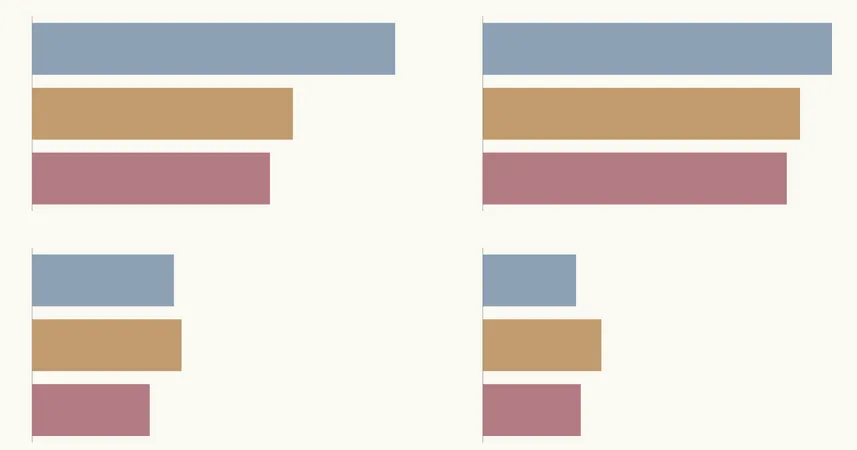
Urgent Call for Pneumococcal Vaccine Rollout as Malaysia Battles Rising Pneumonia Deaths
2024-11-25
Author: Wei
Urgent Call for Pneumococcal Vaccine Rollout as Malaysia Battles Rising Pneumonia Deaths
PETALING JAYA – Health experts are urging Malaysia to implement a pneumococcal vaccination campaign targeted at adults and high-risk groups to combat the alarming increase in pneumonia-related fatalities. While children already benefit from the pneumococcal vaccine as part of the National Immunisation Programme, adults, particularly the elderly and those with chronic illnesses, currently lack this preventive measure.
Dr. Shanmuganathan Ganeson, president of the Federation of Private Medical Practitioners' Associations Malaysia, emphasizes that the integration of pneumococcal vaccines into public health policy is essential. “Countries that have adopted such programs have significantly reduced pneumonia-related morbidity and mortality,” he stated, advocating for Malaysia to follow their lead.
The pneumococcal vaccine is a game changer. It can drastically reduce hospitalizations caused by severe pneumonia, lower the overall healthcare costs associated with complicated cases, and promote herd immunity, thereby protecting those who cannot be vaccinated. Economic studies from other countries indicate that implementing national vaccination programs can lead to substantial long-term savings alongside enhanced health outcomes.
Pneumonia has increasingly become a prominent cause of death in Malaysia, especially after the COVID-19 pandemic resulted in a rise in secondary bacterial infections. Dr. Shanmuganathan pointed out that the heightened risk among the elderly and those with pre-existing conditions like diabetes and heart disease is alarming. In addition, the emergence of antibiotic-resistant strains, particularly Streptococcus pneumoniae, complicates treatment, leaving vulnerable populations at significant risk.
Highlighting the efficacy of the available pneumococcal vaccines – specifically the pneumococcal conjugate vaccine (PCV) and the pneumococcal polysaccharide vaccine (PPSV) – he noted that these vaccines can prevent up to 80% of serious diseases. “It’s crucial, especially for older adults and those with chronic conditions, as they face a significantly lower risk of complications and mortality when vaccinated,” he explained.
Awareness needs to be raised about the availability of these vaccines in hospitals and clinics, particularly among children under two, adults over 65, and those with compromised immune systems. Dr. Shanmuganathan also emphasized the importance of updating the COVID-19 vaccination program to focus on emerging variants and at-risk populations.
A broader respiratory health strategy is now more critical than ever, incorporating vaccinations against pneumonia and influenza, plus ensuring timely diagnosis and treatment for respiratory infections. Dr. Kuljit Singh, president of the Association of Private Hospitals Malaysia, supports the initiative, stating that while COVID-19 cases may have decreased, influenza and respiratory syncytial virus (RSV) cases are on the rise.
“Introducing pneumococcal vaccines into Malaysia's national vaccination program is essential,” he asserted, highlighting the need for easy access to these vaccines at private medical facilities. The roll-out could significantly lower morbidity and mortality rates, especially within high-risk groups.
The recommended pneumococcal vaccines, ranging from RM280 to RM400, can also serve to alleviate the financial burden of treating pneumonia. Dr. Kuljit underscored the considerable population at risk due to the country’s aging demographic and the rise of non-communicable diseases. Additionally, the increase in smoking – both traditional and electronic – could be contributing to the surge in respiratory infections. "Smoking can severely impair the respiratory system’s defenses, leading to an elevated risk of conditions like pneumonia," he warned.
With pneumonia now a leading cause of death, the call for action has never been clearer: Malaysians, particularly those in high-risk categories, must prioritize getting vaccinated to avert further loss of life from this preventable disease.





 Brasil (PT)
Brasil (PT)
 Canada (EN)
Canada (EN)
 Chile (ES)
Chile (ES)
 España (ES)
España (ES)
 France (FR)
France (FR)
 Hong Kong (EN)
Hong Kong (EN)
 Italia (IT)
Italia (IT)
 日本 (JA)
日本 (JA)
 Magyarország (HU)
Magyarország (HU)
 Norge (NO)
Norge (NO)
 Polska (PL)
Polska (PL)
 Schweiz (DE)
Schweiz (DE)
 Singapore (EN)
Singapore (EN)
 Sverige (SV)
Sverige (SV)
 Suomi (FI)
Suomi (FI)
 Türkiye (TR)
Türkiye (TR)